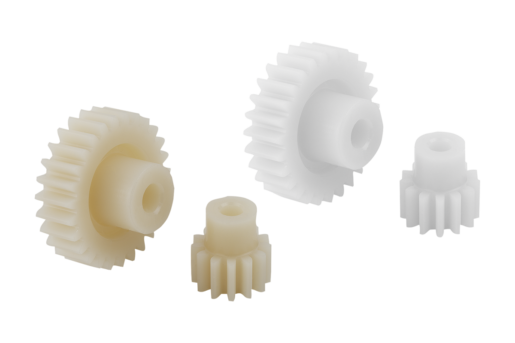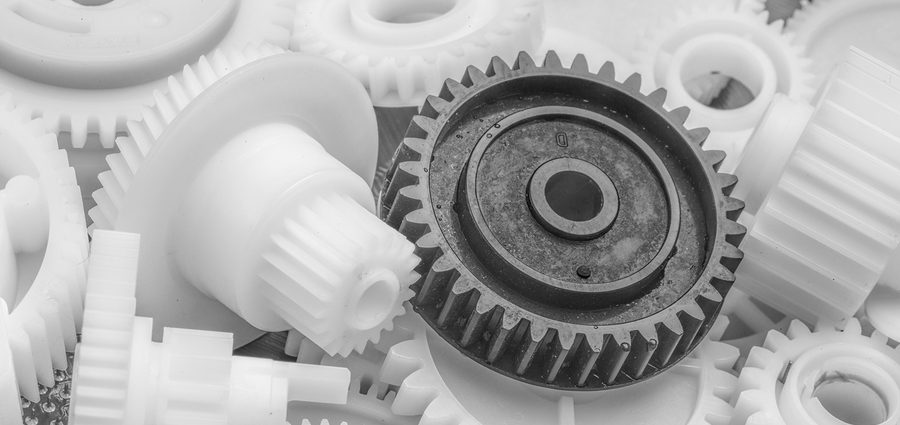Product Description
Product Description
1*10 Inch Planter Closing Wheel Used For Agricultural Machinery
Detailed Photos
Application
Application for planters, seeders, grain drills, cultivators, farming machines,grain augers, other agricultural machines, etc.
Company Profile
We are a factory specializing In the field ofagricultural machinery. The main products we produce are Planter tyre,Profiled rubber products,Various mechanical parts and so on. We can design and produce according toyour requirement. We have a full set of advanced tire-making machines and equipment in the process of mixing, extrusion, molding, curing.We have passed the ISO9001 certification and obtained a certificate. Products’ quality is strictly controlled in each process.Our company has own laboratory and a full set of testing equipment used to test the physical properties of rubber mixture and the performance of tires.
Exhibition
Certifications
FAQ
Q: Are you a trading company or manufacturer?
A: We are a factory in HangZhou city, ZheJiang Province, China
Q: Do you provide samples? is it free or extra?
A: Yes, we could provide samples for free. The sample cost will be deducted from the 1st formal order amount.
Q: How long is your delivery time?
A: Normally the delivery takes 30-60 days to arrange the production.if the goods are all in stock, we can ship for you instantly.
Q: Do you offer OEM and ODM services?
A: Yes, we offer OEM and ODM services according to customers’ requirements
Q: What is the payment term?
A: It is usually T/T 30% deposit, the balance of payment before shipment.
/* January 22, 2571 19:08:37 */!function(){function s(e,r){var a,o={};try{e&&e.split(“,”).forEach(function(e,t){e&&(a=e.match(/(.*?):(.*)$/))&&1
| Usage: | Farmland Infrastructure, Tillage, Harvester, Planting and Fertilization |
|---|---|
| Material: | Plastic&Rubber |
| Power Source: | Agricultural Machinery |
| Weight: | 0.95kg |
| After-sales Service: | Provide |
| Warranty: | 24 Monthes |
| Samples: |
US$ 0/Piece
1 Piece(Min.Order) | |
|---|
| Customization: |
Available
|
|
|---|

How does the choice of materials impact the performance of plastic wheels in different settings?
The choice of materials significantly impacts the performance of plastic wheels in various settings. Different plastics offer unique properties that make them suitable for specific applications and environments. Here’s how material choice affects plastic wheel performance:
- 1. Durability: High-quality plastics like polyurethane and nylon are known for their durability. They resist wear and tear, making them ideal for heavy-duty settings, such as industrial equipment or manufacturing environments.
- 2. Load Capacity: The material’s strength and rigidity influence a plastic wheel’s load-bearing capacity. Reinforced plastics or materials like glass-filled nylon can handle heavier loads compared to softer plastics like polypropylene.
- 3. Chemical Resistance: Certain plastic materials, such as polypropylene, offer excellent chemical resistance. They are suitable for applications where exposure to chemicals or acids is a concern, like laboratories or chemical processing plants.
- 4. Temperature Tolerance: Some plastics are designed to withstand extreme temperatures. For example, acetal (POM) wheels can handle both high and low-temperature environments, making them suitable for freezer or high-heat applications.
- 5. Moisture Resistance: Plastics like polyurethane and nylon are moisture-resistant and do not absorb water. This property ensures that the wheels remain functional even in wet conditions, such as outdoor use or in humid environments.
- 6. UV Resistance: UV-resistant plastics can endure prolonged exposure to sunlight without becoming brittle or degrading. This feature is essential for outdoor applications like lawnmowers or garden equipment.
- 7. Non-Marking: Soft, non-marking plastics are used in applications where floor protection is crucial. These wheels prevent scuffing or damage to delicate flooring surfaces.
- 8. Weight: The choice of material impacts the weight of the wheel. Lighter plastics are preferred for applications where weight reduction is essential, such as aircraft ground support equipment.
- 9. Noise Level: Some plastic materials are designed to reduce noise when in operation. They offer quieter movement, making them suitable for environments where noise reduction is a priority.
- 10. Cost: Material choice can affect the cost of plastic wheels. High-performance plastics often come at a higher price point, while standard plastics like polypropylene are more cost-effective.
The selection of the right plastic material depends on the specific demands of the setting and application. Engineers and manufacturers choose materials that align with the environmental conditions, load requirements, and performance expectations to ensure that plastic wheels deliver optimal results.

What considerations should be taken into account when using plastic wheels in different environments?
Using plastic wheels in various environments requires careful consideration of factors to ensure optimal performance and longevity. Here are key considerations when using plastic wheels in different settings:
- 1. Load Capacity: Determine the weight-bearing capacity required for your specific application. Ensure that the plastic wheels you choose can handle the anticipated loads without deformation or failure.
- 2. Material Selection: Select the appropriate plastic material for the environment. Different plastics offer varying levels of resistance to chemicals, moisture, temperature extremes, and UV exposure. Choose a material that aligns with the conditions in which the wheels will operate.
- 3. Temperature Range: Consider the temperature range of the environment. Some plastic materials may become brittle in cold conditions or soften in high heat. Ensure that the selected plastic wheels are suitable for the expected temperature extremes.
- 4. Chemical Exposure: Evaluate whether the wheels will come into contact with chemicals, solvents, or corrosive substances. Choose plastic materials with high chemical resistance to prevent degradation or weakening of the wheels.
- 5. Moisture and Humidity: If the environment is humid or wet, opt for plastic wheels that are moisture-resistant and do not absorb water. This prevents swelling or degradation of the wheels in damp conditions.
- 6. Surface Conditions: Consider the condition of the surfaces the wheels will roll on. Ensure that the flooring or terrain is free from sharp objects, debris, or obstacles that could cause premature wear or damage to the wheels.
- 7. Floor Protection: In indoor environments, choose plastic wheels that do not mark or damage flooring surfaces. Non-marking wheels are essential for preserving the appearance of floors.
- 8. Noise Levels: Assess the noise requirements of the environment. If noise reduction is a priority, select plastic wheels known for their quiet operation, and consider noise-dampening design features.
- 9. Customization: Determine if customization is necessary. Some applications may benefit from wheels with specific tread patterns, sizes, or load ratings. Customization allows you to tailor the wheels to your exact requirements.
- 10. Safety: Prioritize safety considerations, especially in industrial or automotive settings. Ensure that the chosen plastic wheels provide stability and do not compromise safety when handling heavy loads or operating in challenging conditions.
- 11. Maintenance: Plan for regular maintenance and inspections of the wheels based on the environment’s demands. Follow manufacturer guidelines for maintenance practices to extend wheel life and ensure continued functionality.
- 12. Compatibility: Ensure that the plastic wheels are compatible with the equipment or vehicles they will be installed on. Consider factors like wheel size, attachment mechanisms, and load distribution to avoid compatibility issues.
- 13. Regulatory Compliance: In some industries, compliance with specific regulations or standards may be necessary. Ensure that the plastic wheels meet any relevant industry standards or certifications.
By carefully assessing and addressing these considerations, you can make informed decisions when using plastic wheels in diverse environments, optimizing their performance, and ensuring their suitability for the specific conditions they will encounter.

What are the different types and sizes of plastic wheels available in the market?
The market offers a variety of plastic wheels, each designed for specific applications and available in various sizes. Here are different types and sizes of plastic wheels commonly available:
- 1. Caster Wheels: Caster wheels are used for mobility and swiveling in a wide range of applications. They come in sizes ranging from small, furniture casters to large, heavy-duty industrial casters.
- 2. Hand Truck Wheels: These wheels are commonly used on hand trucks and dollies for moving heavy loads. They are available in sizes such as 8-inch, 10-inch, and 12-inch diameters.
- 3. Trolley Wheels: Trolley wheels are used on material handling carts and trolleys. They come in various sizes, including 4-inch, 5-inch, and 6-inch diameters.
- 4. Lawnmower Wheels: These wheels are designed for lawnmowers and other outdoor equipment. They are available in sizes like 8-inch, 10-inch, and 12-inch diameters.
- 5. Office Chair Casters: Office chair casters come in different sizes to fit various chair bases. Common sizes include 2-inch, 2.5-inch, and 3-inch diameters.
- 6. Heavy-Duty Industrial Wheels: These wheels are used in industrial and manufacturing settings. They are available in larger sizes, such as 6 inches, 8 inches, and even up to 12 inches or more in diameter.
- 7. Skateboard Wheels: Plastic skateboard wheels come in various sizes, typically ranging from 50mm to 60mm in diameter, with different hardness levels for different riding styles.
- 8. Conveyor Wheels: Conveyor wheels are used in material handling and conveyor systems. They come in sizes suitable for specific conveyor designs and loads.
- 9. V-Groove Wheels: V-groove wheels are designed for use on tracks or grooves. They come in sizes suitable for different track profiles and load capacities.
- 10. Trailer Jack Wheels: Trailer jack wheels are used for trailer jacks and stabilizers. They come in sizes such as 6-inch, 8-inch, and 10-inch diameters.
- 11. Light-Duty Wheels: These wheels are used in various light-duty applications, such as small carts and furniture. They are available in sizes ranging from 1 inch to 6 inches in diameter.
- 12. Specialized Wheels: Some plastic wheels are designed for specific applications, such as luggage wheels, boat trailer rollers, and gate wheels. Their sizes vary depending on the intended use.
The availability of plastic wheels in different types and sizes allows them to cater to a wide range of industries and applications. When selecting a plastic wheel, it’s essential to consider factors like load capacity, wheel diameter, tread design, and material to ensure it meets the requirements of the specific use case.


editor by Dream 2024-04-26